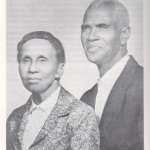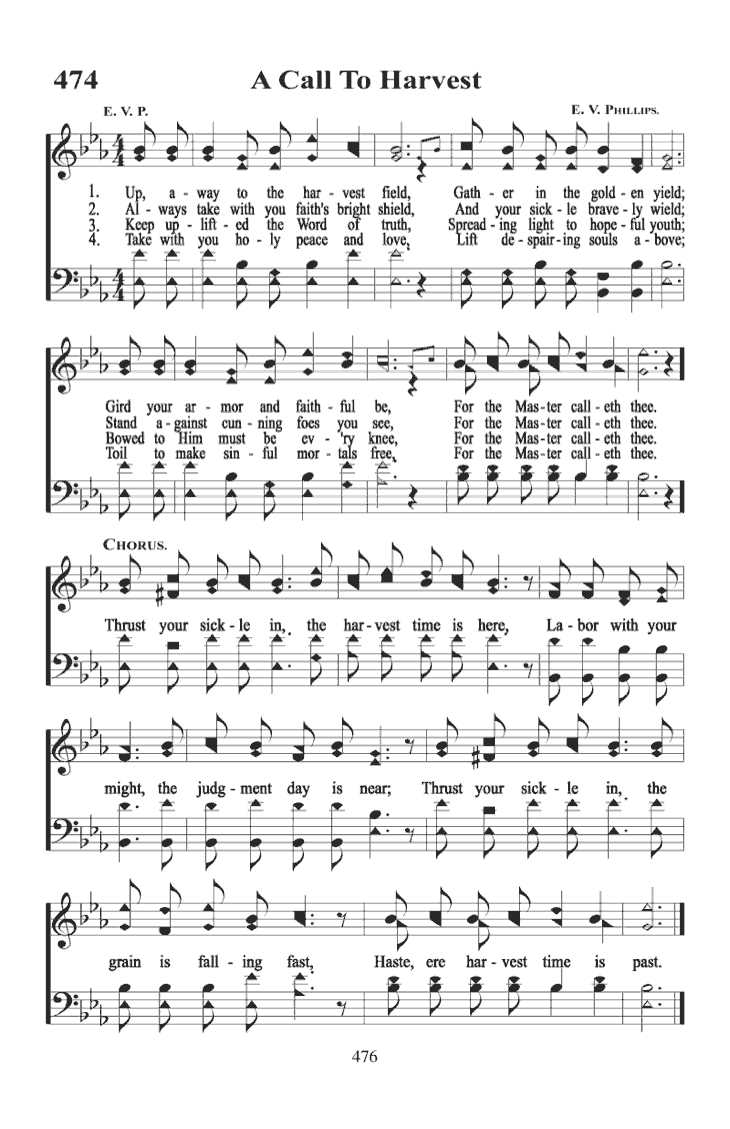On December 5, 1906, twenty-five year old Ella Victoria Sharp excitedly held the hands of her two younger sisters, Lillie and Lela, as they boarded a train at Seneca, South Carolina, along with their parents, Joseph and Evelene Sharp, their older brother, Jodie, his wife, Florence, and their older sister, Clara. Their train ride would carry them on to New York City, where they would board a ship bound for Monrovia, Liberia.
AFRICA . . . . The young teacher and her family harbored fervent dreams of establishing permanent residency there and teaching the natives about Jesus. She later wrote in her diary: “As we got the car at Seneca, we just put our whole bodies and souls in our Heavenly Father’s care, because we felt our littleness. Oh how blessed it is to trust the Lord.”
The voyage was fairly uneventful for the Sharp family; besides the normal bouts with sea-sickness, they enjoyed seeing the new sights along the way. On December 15, the vessel arrived at Liverpool, where they went ashore to stay a few days and see the saints there. They visited the ancient, walled city of Chester, looking in on a service of the Church of England, where they marveled at the many images, crypts, and black and white-robed priests.
On Tuesday, December 18, Ella records: “We had a precious little meeting in Chester with Bro. and Sis. Cheathum and the rest of the saints. . . It is so good to be in God’s hand. He is blessing us in every way.”
Their journey took them past the Canary Islands and the beautiful coastal town of Free Town, Sierra Leone. Finally, safe and sound, they arrived in Monrovia on January 3, 1907.
Soon after they arrived, Joseph Sharp, who had escaped being sick at sea, fell ill and soon died. Her father’s death was to be the first of many hard tests for young Ella. A month later, her brother, Jodie, died also. She writes,
“I am truly glad and thankful that God is everywhere and is here in Liberia, Africa. He let sickness and disease come upon us and our loved ones, yet I am encouraged to go on. This was one test that truly tried me. It seem as though the Lord did not hear my prayer, but the Lord were only trying me. Truly I thank Him for His mercy. It put a real launching-out spirit within. My experience—indescribable in Africa. Sickness began again to take my brother’s wife out of the family two weeks later. All of this seem discouraging. Amidst of a wicked nation in a land where there was no saints, and no one who were trusting God. My faith did seem weak. The Lord only bore those burdens. It was wonderful how the Lord brings me through. He is a father to me. He is all to me, yes, a mother. During these experiences I could feel a great heaviness and a cold spirit of prayer seem to be present. Prayer did not seem to have any sweetness at all.”
Soon another heavy blow fell, as Clara also became sick with the fever. Ella and her mother and younger sisters prayed earnestly and did all they could, but death came to Clara, and the mother, stunned by another blow of grief, became speechless and never recovered. “I felt like a drowning man,” wrote Ella after the death of her mother, “The Lord truly was my comforter and guide.”
As the end of six months drew near, Ella and her two remaining younger sisters, who miraculously, by God’s hand, had never taken the sickness, prepared to board the ship for the return voyage to the United States. So much had happened in just half a year. So many dreams were dashed, and hopes of carrying the gospel to the African natives seemed blighted. Her family later wrote: “What fortitude and strength the Lord gave Ella to continue on. She did not lavish herself in the luxury of self pity, but sought God for guidance.” For several years, she taught school in several states, and traveled in the Gospel work.
In 1917, Ella married thirty-year old Ulysses Phillips, a minister of great faith in praying for the sick, and greatly gifted in writing poetry and song. Sis. Ella soon joined with him in the song-writing ministry, and together they gave the saints of God many beautiful songs to sing. Their labors lasted many years; in September, 1974, Ella, a woman of prayer and faith, pastor’s wife, mother of three and grandmother of eleven, went to her reward at the age of ninety-three.
Could it be, as she penned the words to the song, “A Call to Harvest,” that she looked back in memory to that distant land, where five graves lay among the natives? Did she remember with longing the call and passion they felt as their ship had neared the shores of that unknown land? I have to think she left part of her heart there, and carried with her, the rest of her days, the “harvest call” to carry the gospel to the lost.



Leave A Comment